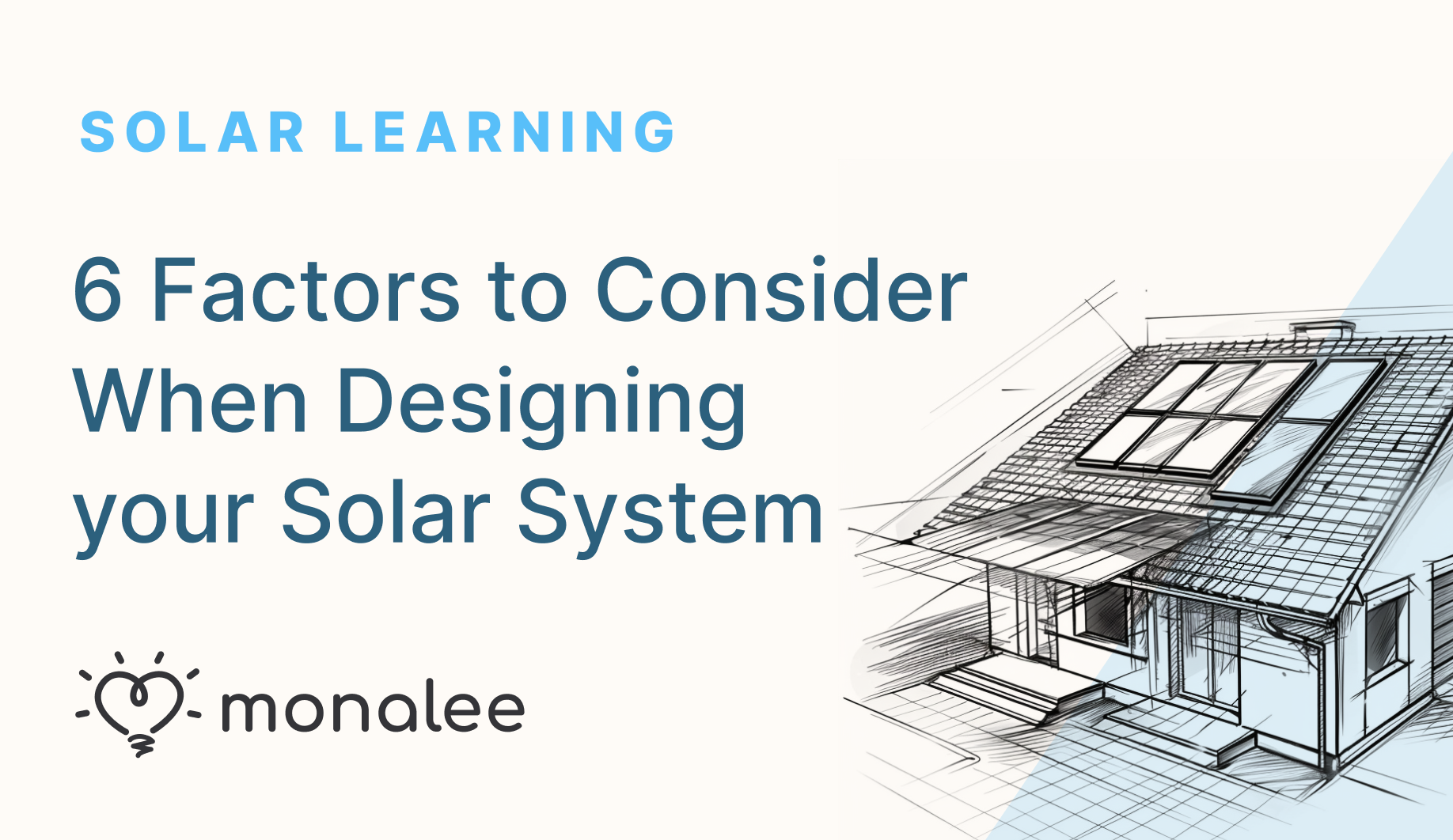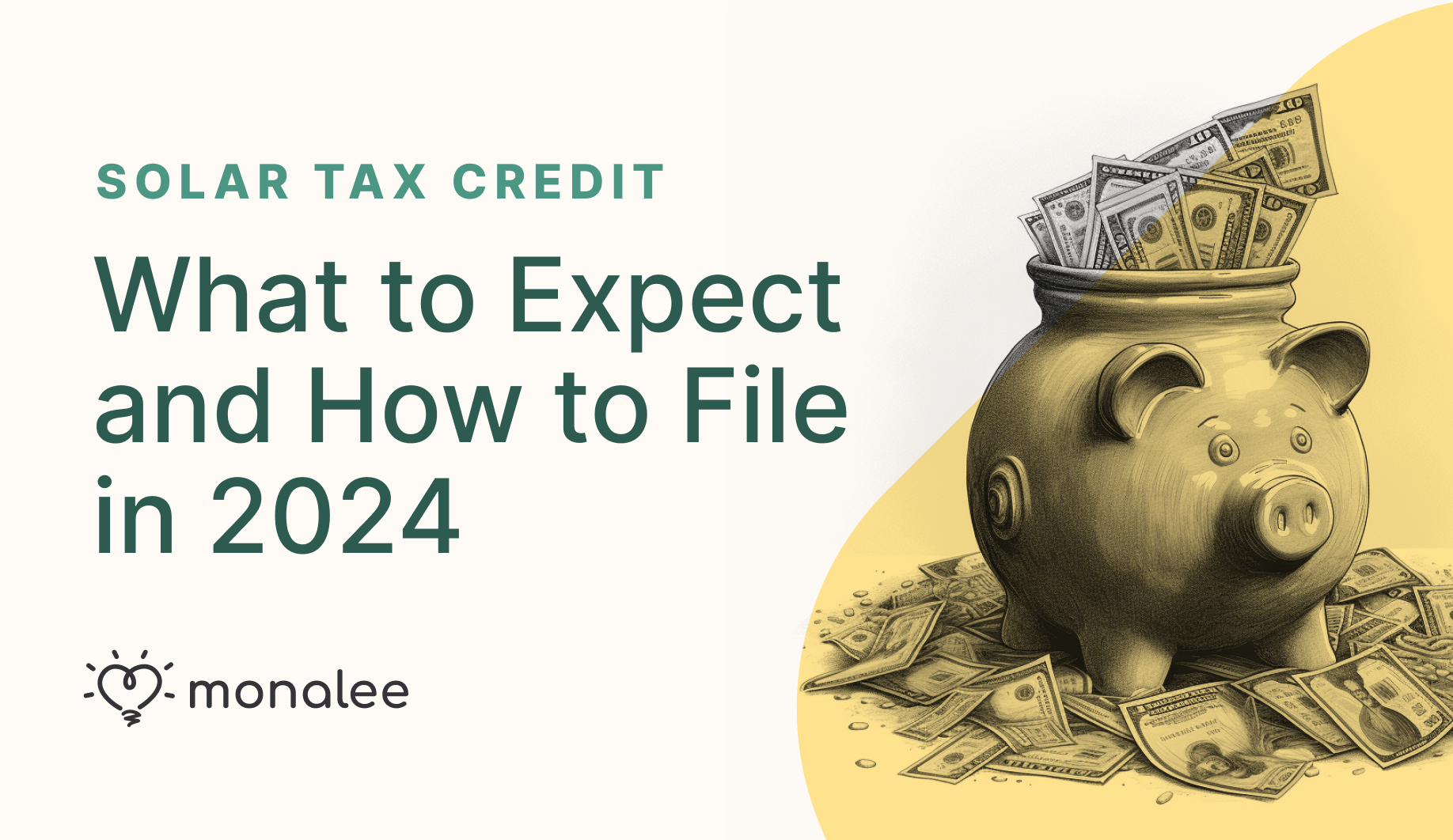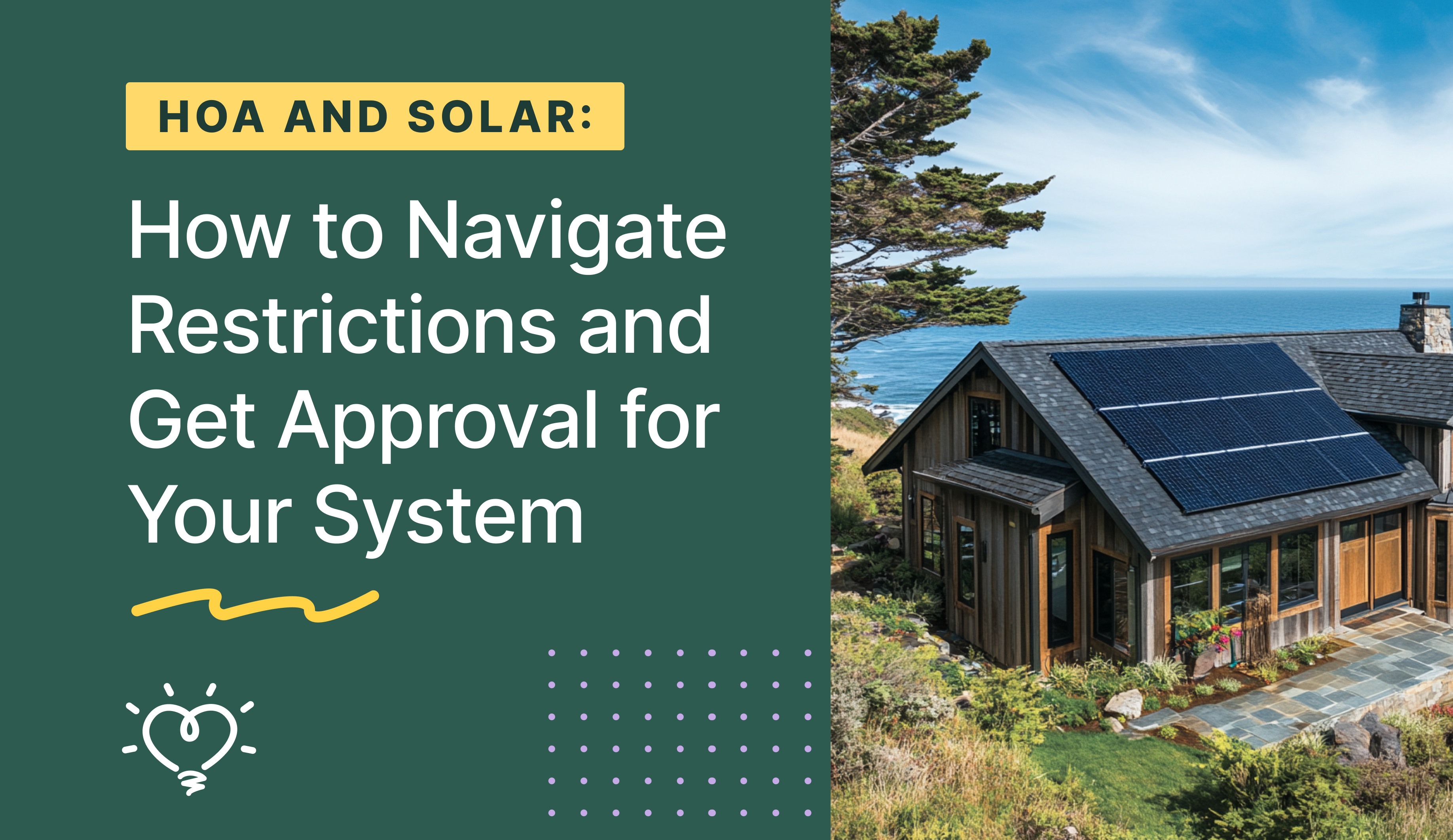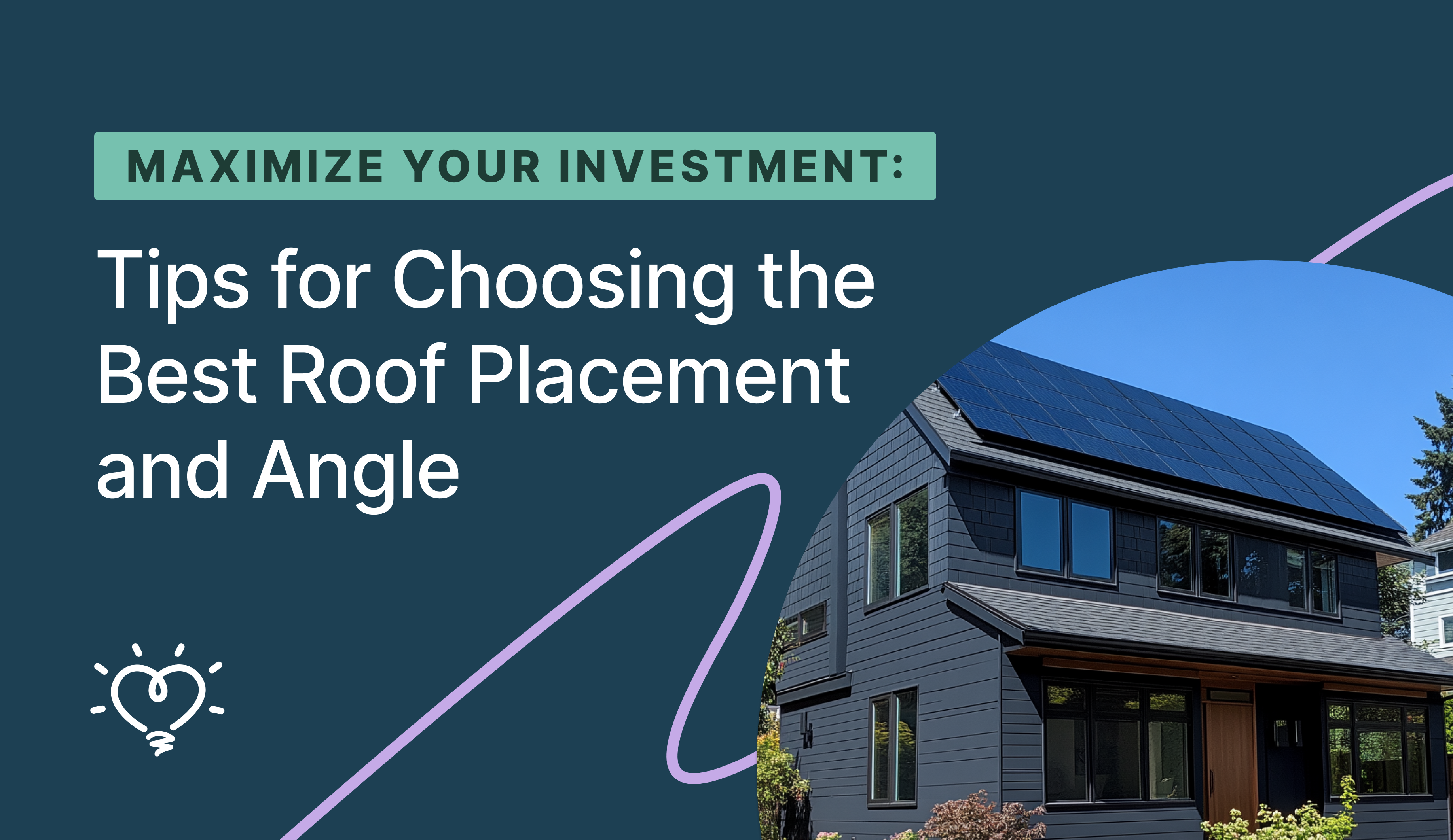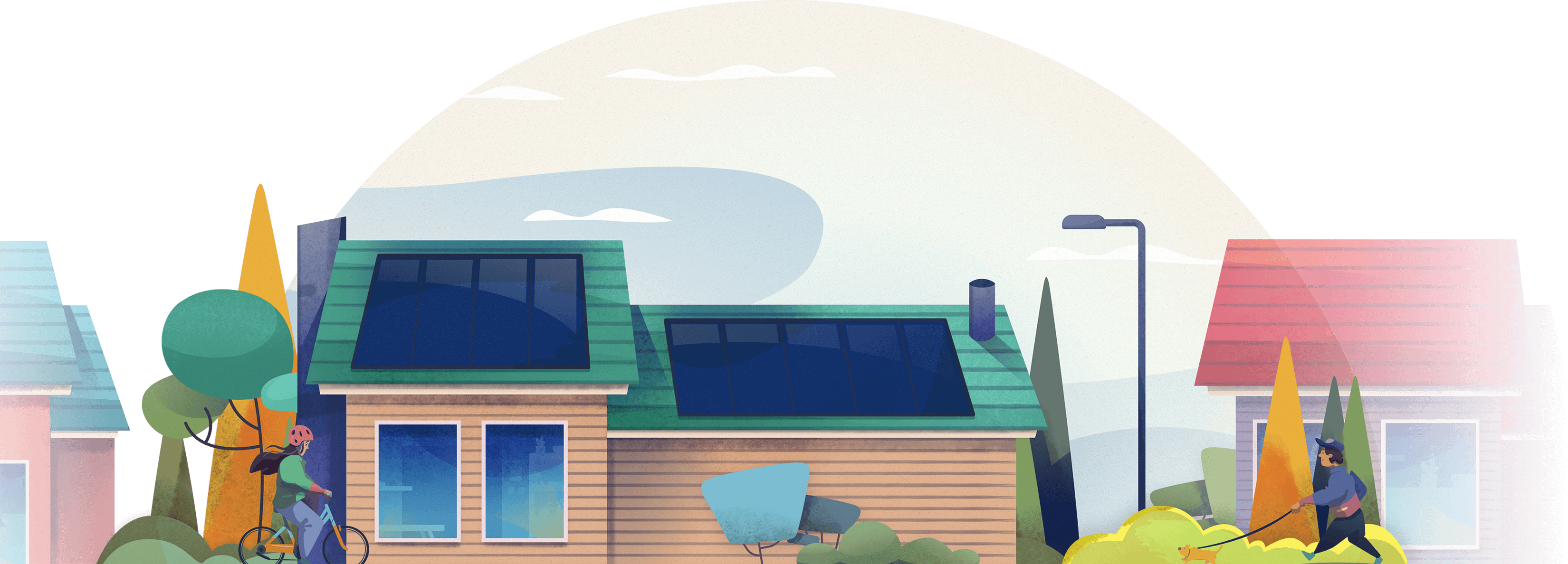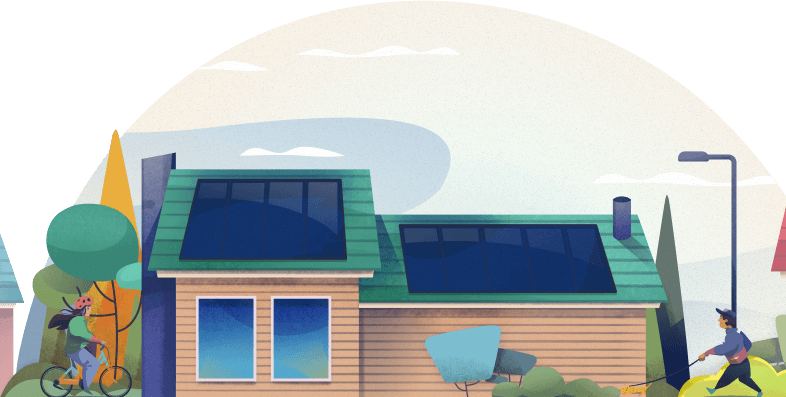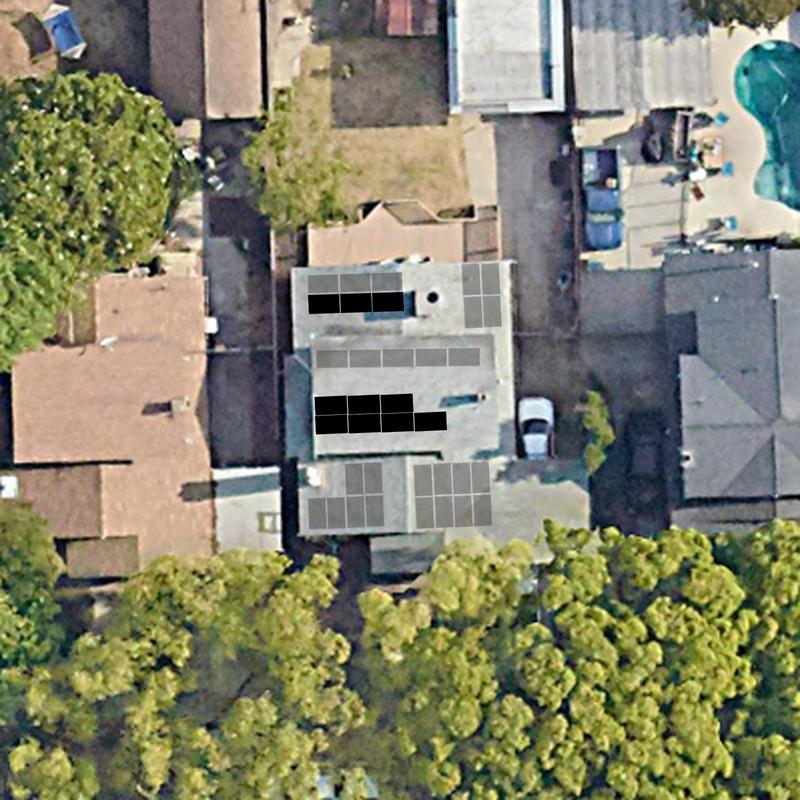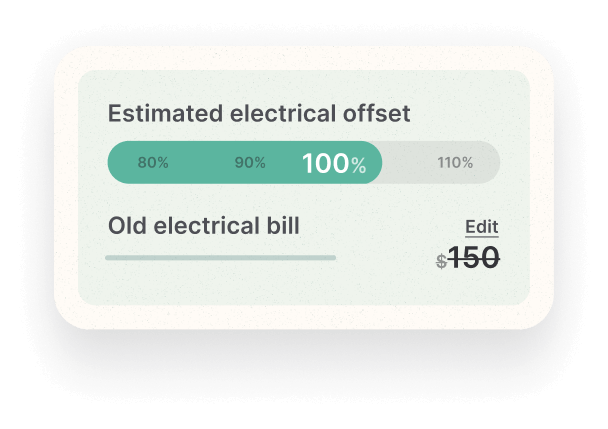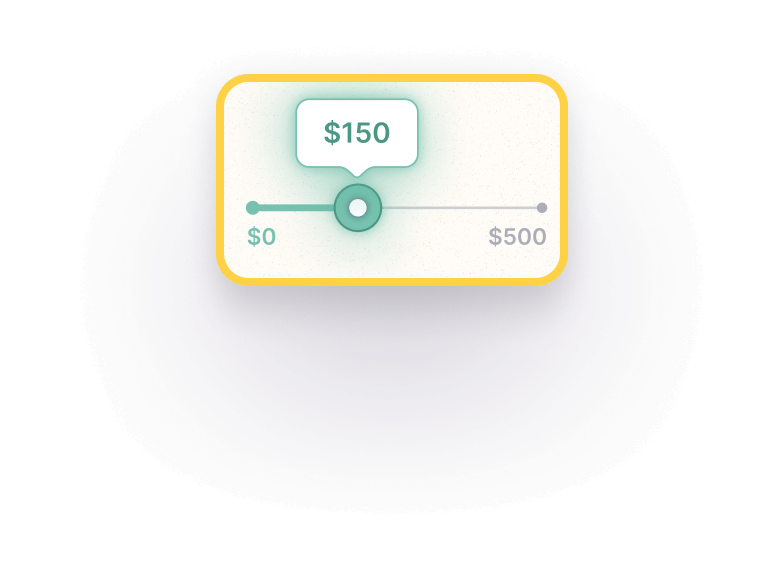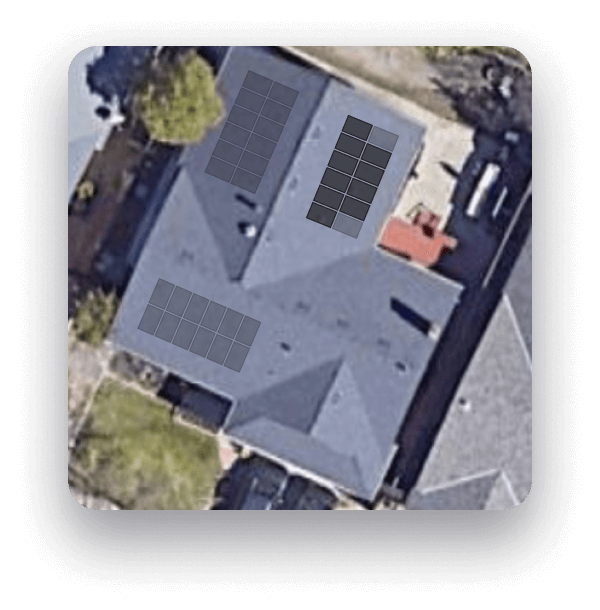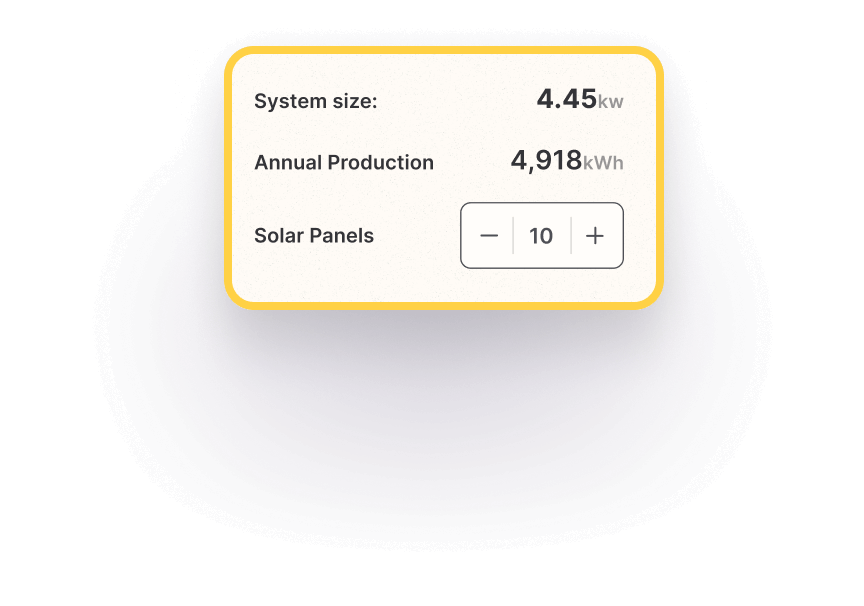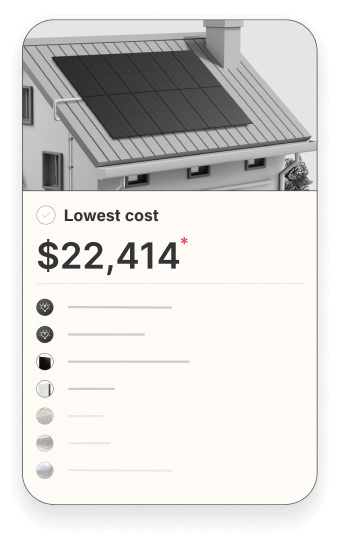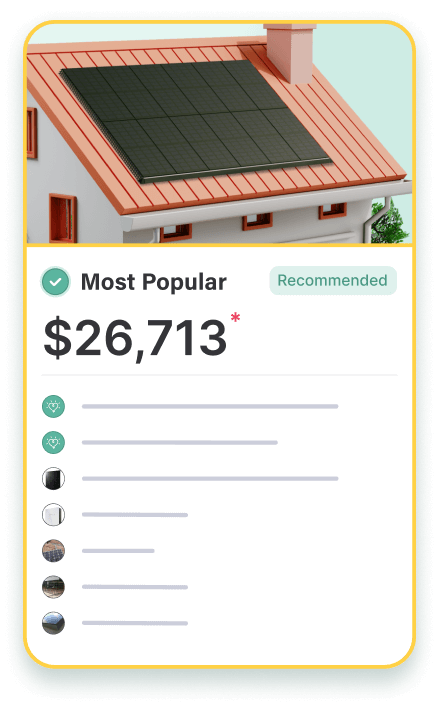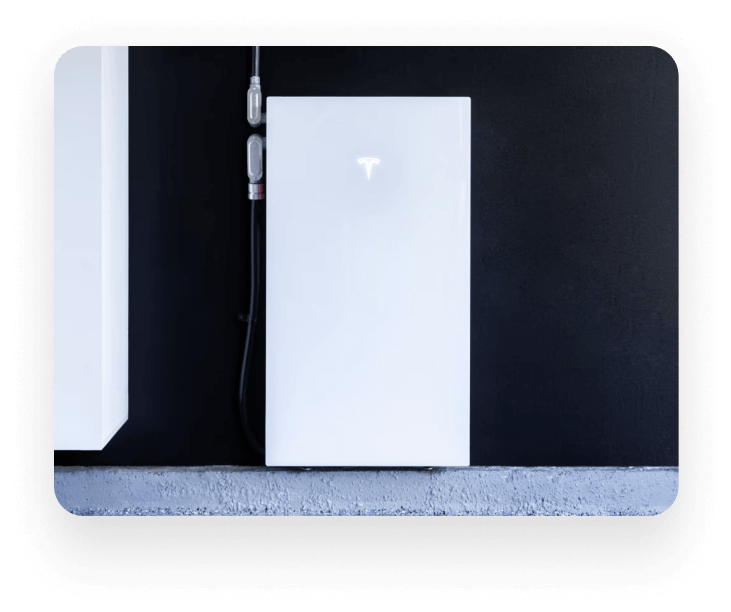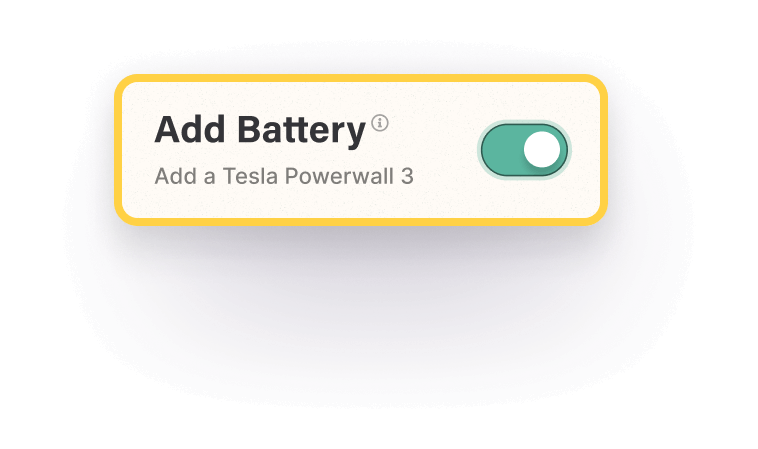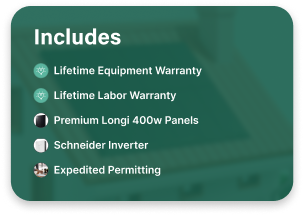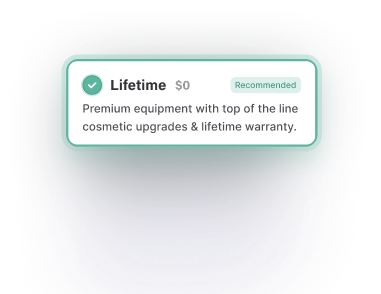Living off-the grid can do wonders for the environment, but proceed with caution.
Living off-the grid can do wonders for the environment and is a big step toward energy independence. At its core, being energy independent means that a household is able to generate enough of its own energy without needing to rely on traditional energy sources. There are a few downsides to consider, such as not generating the amount of energy your home needs to stay full up and running, and the potential to run out of stored up energy.
In this piece, we’ll break down what it means to truly be off the grid, and the pros and cons of choosing this type of solar setup.

What does it mean to be off-grid?
An electric ‘grid’ is a type of network in which consumers–in this case, homeowners–can access electricity from their local utility company. There’s a lot more to it but in its simplest form, being connected to your utility company’s utility grid means that you have a reliable source of electricity to power your home.
Being off-grid means that a homeowner is not connected to their utility company’s local grid and therefore completely self-reliant on solar energy. Off-grid solar systems are pretty rare and we don’t recommend it (more on that later). The only situation where it might make sense is if you own a vacation cabin outside of town or if you live in a remote area where the grid is either unreliable or limited.
Keep in mind that most AHJs don’t allow homeowners to completely disconnect their homes from the grid, so they will be still connected, albeit without purchasing their energy.
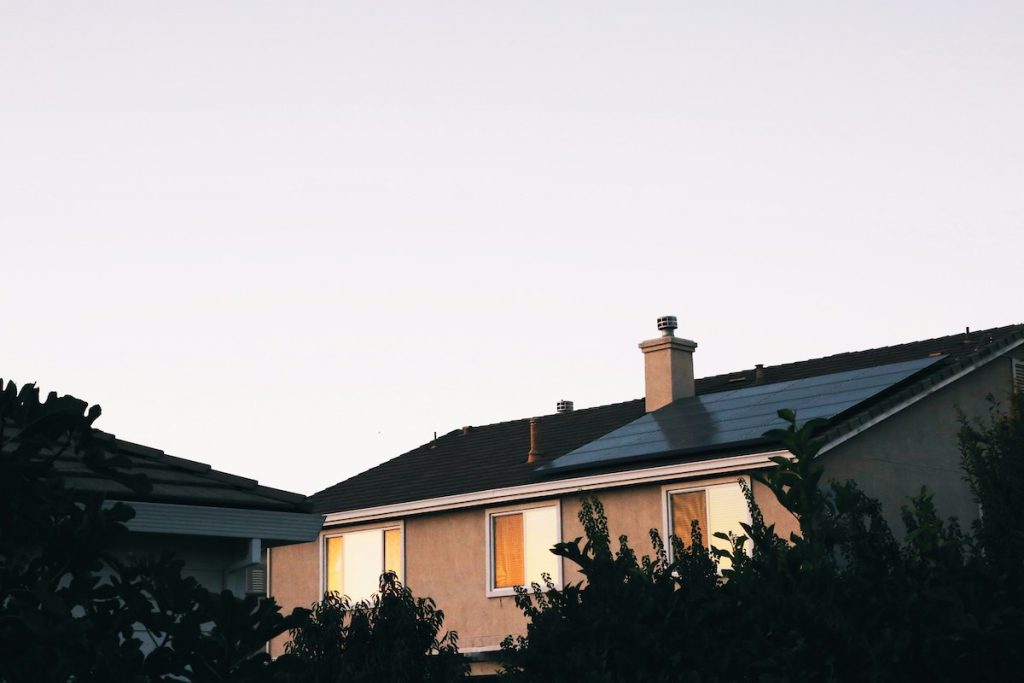
How do off-grid systems work?
When you live off-grid, you aren’t connected to the local grid and therefore will need to power your home with another energy source. For homeowners who choose to be off-grid, we recommend investing in a solar battery so that you can store the excess energy your system produces.
Depending on how much energy you consume and whether or not you want all of your appliances to be backed up during a power outage, you might want to invest in two or more batteries. This way, you can store twice the amount of excess energy before you run out.

Pros of off-grid solar systems
Choosing to go ‘off-grid’ is a risky decision but some people do prefer it. Here are the biggest motivations for going off grid.
Full energy independence
The biggest benefit of going off-grid is that you have full energy independence. You don’t rely on the local grid for electricity and won’t receive any sort of utility bill. Becoming energy independent reduces your dependence on external energy sources, which can liberate you from increasingly high electric bills, potential service disruptions, and the uncertainties of market fluctuations.
Increased sustainability
An off-grid lifestyle is usually one of sustainability, so you can rest easy that you are doing your part to respect the environment. Adopting solar power not only benefits individuals but also contributes to the global shift toward renewable energy sources.
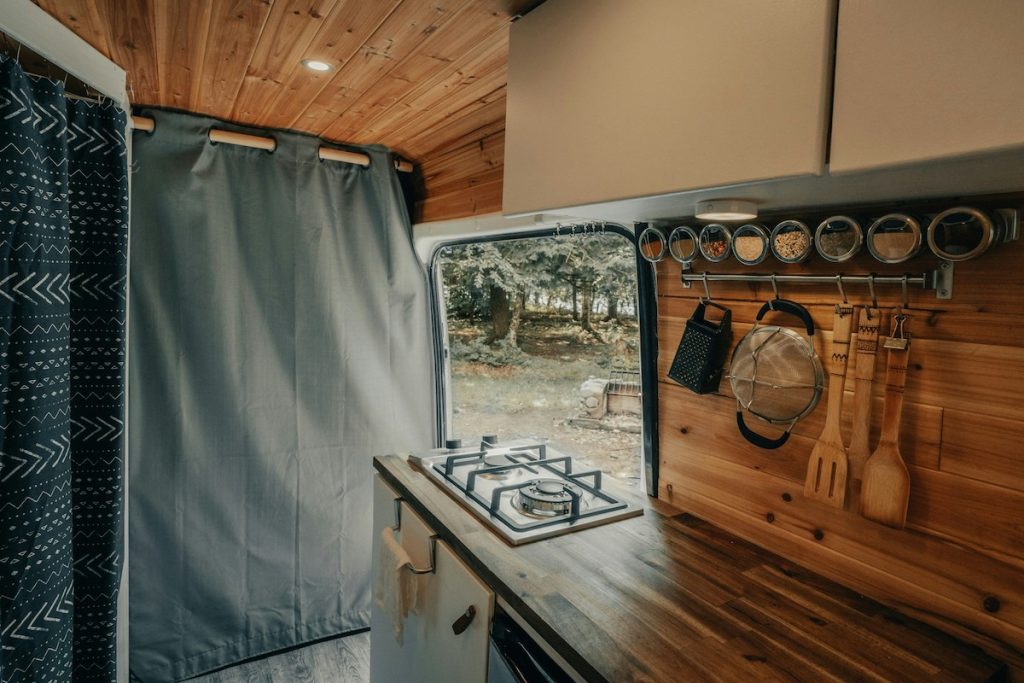
Cons of off-grid solar systems
Living off-grid is great until you’re snowed in or run out of stored energy to power your home. You’re ‘cut off’ in more ways than one.
Your solar power is limited
Even though solar panels only need a few hours of strong sunlight to fully power most homes, endless days of rain or snow can definitely impact how much energy a system produces. If you live in a remote area where it can be potentially dangerous to leave–in a snowstorm, for example–you might literally run out of energy to keep the lights on and the heat running. These are extreme situations but they can and do occur.
It leaves little room for error
While it’s not likely, there’s always the chance that a piece of equipment breaks, such as one or more solar panels, an inverter, or a solar battery. While you wait for workers to repair the parts, your system won’t be generating any more power. Wires can also get damaged in extreme heat or by birds and critters.
Excess batteries are costly
Those who are fully committed to living off-grid should invest in several batteries as a safety measure against inclement weather causing power outages. A backup battery can be an expensive add-on, and especially so if you plan to purchase more than one.
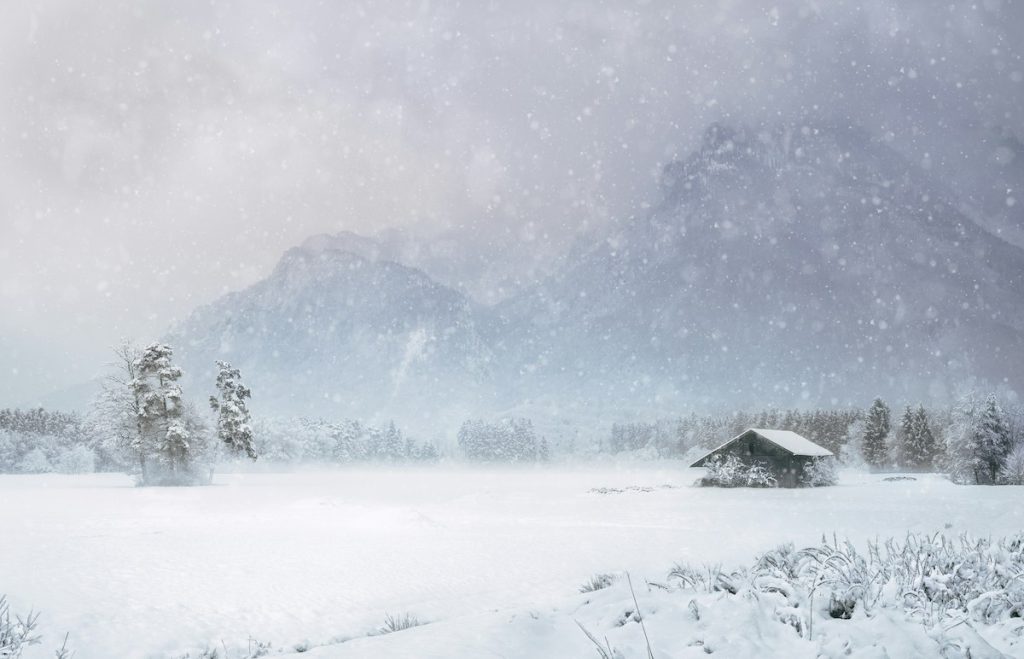
In Conclusion
Here at Monalee, we’re all about living more sustainably and being kinder to the environment. In the case of going fully-off grid, it’s not something we recommend simply because it puts you at risk of losing power should extreme weather or a local power cut occur. Your best bet is to rely on your solar system as much as possible, but still stay connected to the local grid for emergencies. This is true even if you have a solar battery.



